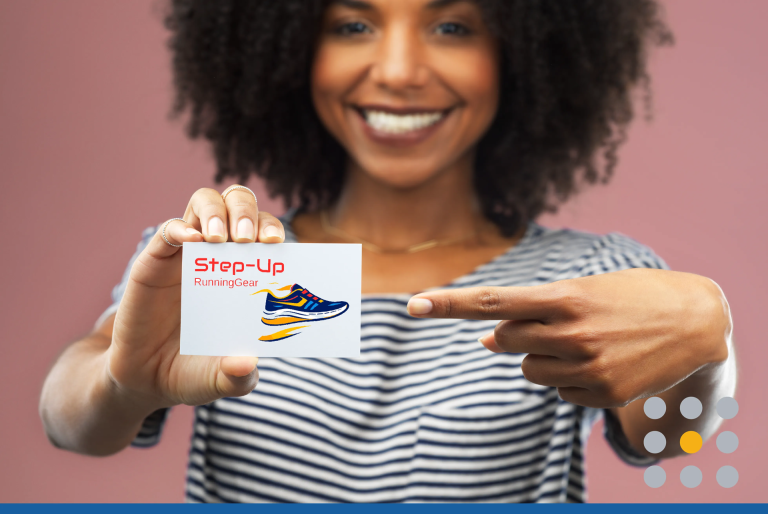Creating an image of success and authority for your business is a smart way to win more customers. People are comfortable doing business with companies they trust to meet their expectations. If your business looks profitable, customers believe you can deliver what they need.
Now, imagine how your reputation soars when you work alongside other successful brands. Through event sponsorship, you can leverage this power of collective credibility. Sponsorship is increasingly popular among businesses that want to grow fast and reach quality audiences.
In fact, brand strategy firm ESP Properties expects 2018 sponsorship spending to reach $24.2 billion in North America and $65.8 billion globally.
What does it mean to sponsor an event? Sponsors offer funding or products and services to support events, trade shows, teams, nonprofits, or organizations. In exchange, you get business exposure and a chance to connect with new customers.
If you’re looking to stretch your marketing budget, here are 10 reasons to sponsor an event.
1. Brand Visibility
Sponsorships put your brand visuals in front of large audiences who haven’t heard of your business. The bigger the event, the more press and social media mentions you get before, during, and after the event day. With many sponsorships, you get featured ads, signs, or radio spots that boost brand recognition.
If you plan promotional giveaways, a huge number of people will be toting your branded swag. Quality matters, so choose events with a track record of attracting good press and customers.
2. Targeted Marketing
Whether you’re involved with a local charity drive or craft fair, the right event attracts highly interested customers. Sponsored events often cater to niche audiences or member organizations. You gain opportunities to engage one on one with people looking for relevant product solutions.
3. Consumer Perception
Few people are motivated to check out a store that always looks sad, shabby, and empty. Likewise, online shoppers are turned off by e-commerce sites with no branding, business details, or security certificates. Public perception can make or break your business.
On the other hand, customers form positive opinions when your business is tied to high-profile events. Customers will assume your business is reliable and reputable if you can sponsor other organizations.
In a 2016 survey, the Event Marketing Institute found that 74 percent of consumers are more likely to buy products after exposure to a branded event marketing experience. Use the clout you earn as a sponsor to grow your reputation in your community.
4. Efficient Lead Generation
Think about the amount of time you normally spend hunting for 10 qualified leads. How about 20, 50, or 100? Not only do events bring you a host of compatible customers, but they also show the human side of your business.
Forming an emotional connection is half the battle of building brand loyalty. By attending in person, you can learn about customers, promote your products, and build a mailing list.
Event holders typically provide data about attendees or attendance rates in advance. Do your research well, and you can plan a strategy for meeting as many people as possible.
5. Sales Goals
Along with leads, consumer events allow you to rack up sales on the spot. Picture a restaurant that sponsors a local music venue or sports team. Setting up a branded booth to feed hungry fans is an easy way to get new business. Many companies make the bulk of their purchases at trade shows, and you can quickly earn their respect as a sponsor.
If sales are your top priority, choose an event with high foot traffic and few direct competitors. For bigger events, you can often pay more for category exclusivity. That way, you don’t have to worry about selling the same products as another vendor.
6. Community Goodwill
Strengthening your business image is one of the most valuable benefits of event sponsorship. Customers love brands that care about spreading positive messages and helping the community. Linking your business to a worthy cause can draw lasting support and media attention.
Community involvement also sets you apart from larger brands. People have more incentive to support your business if you’re invested in the local community. Find out what matters to customers, and pick causes that align with their values to boost loyalty.
7. Content Strategy
Event sponsorships provide fresh material to expand your content strategy. By connecting with the event holder on social media, you can find relevant audiences to target. According to ESP, 98 percent of sponsors uses social media to promote their involvement. Popular events get a lot of engagement, which you can use to create content themes or promote your own hashtags.
Even better, event promotion doesn’t end with sponsors. The Event Marketing Institute reported that 98 percent of consumers create social content during events. When attendees share photos, quotes, videos, and blogs, you get exposure to much larger networks. User-generated content has a greater impact on customers, so make it easy for people to tag your business on social media.
8. Audience Insights
Established organizations and member associations often hand out data about the event performance. In ESP’s findings, 46 percent of sponsors considered post-event reports to be extremely valuable. Thirty percent valued business ideas they gained from events, and 34 percent valued info on audience perceptions.
Event sponsorship is a beneficial learning experience for new and veteran business owners. After all, a roomful of great minds is better than one. You get a firsthand look at how other businesses differentiate themselves and attract customers.
9. Business Relationships
Are you in the market for new partnerships or supplier relationships? Events are great places to find non-competing businesses you can collaborate with in the future.
Small business owners are busy folks, so most are happy to share leads and cut their legwork in half. Find out what businesses are participating, and prepare pitches to introduce yourself to key players.
10. Return on Investment
Whether you plan to sell or not, events are about starting quality relationships. The goal is to leave with a list of leads to follow up on afterward. You don’t necessarily need to make a huge profit on event day, as long as you have a long-term way to leverage your investment.
In ESP’s survey, 55 percent of sponsors said their return on investment increased from 2016 to 2017. To make the most of your event sponsorship, decide what you want to achieve before you go. Come up with a metric to measure your efforts, so you know if an event is worth attending again.
The benefits of event sponsorship are endless if you put in the effort to forge connections. Take advantage of every resource the event holder offers to help businesses, especially as a new participant.
Just like any other transaction, sponsorship roles can be negotiable. Before you sign any contracts, make sure the agreement gives you the level of exposure you want.








